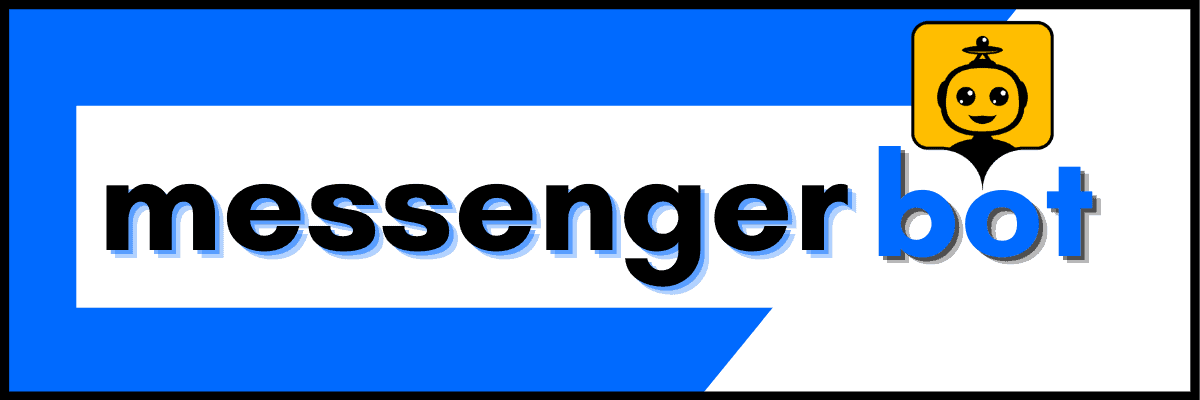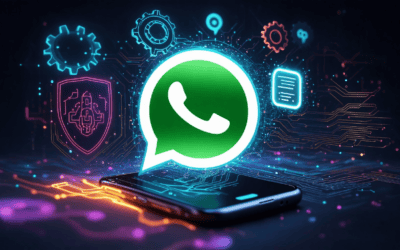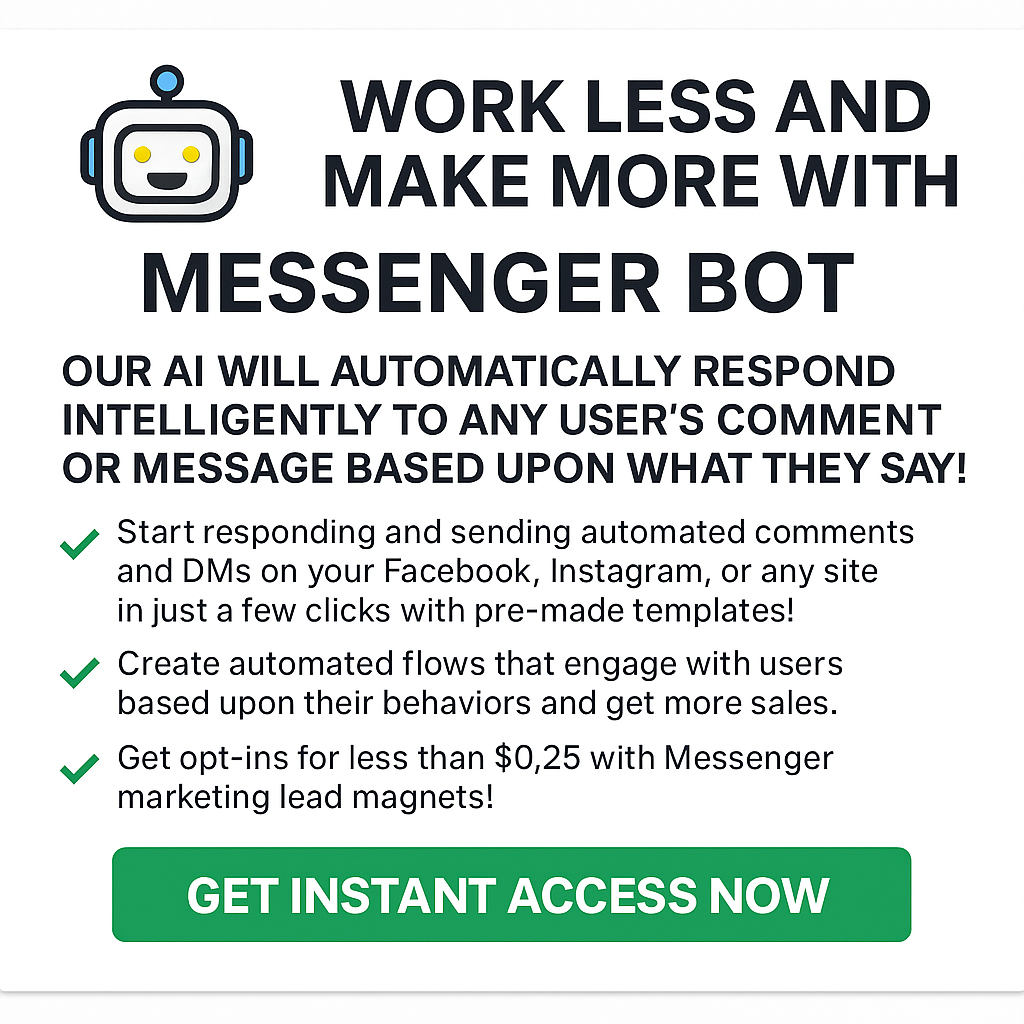In today’s rapidly evolving digital landscape, AI bot marketing has emerged as a game-changing strategy for businesses looking to enhance their customer engagement and streamline their marketing efforts. This article will delve into the transformative power of AI in marketing, exploring how businesses can leverage chatbots for marketing to not only improve customer interactions but also drive sales. We will examine the best AI tools available, compare various marketing chatbots, and provide insights into developing a robust chatbot marketing strategy. Additionally, we will discuss real-world examples of successful chat bot marketing campaigns and outline actionable steps for implementing AI marketing in your business. Whether you’re curious about monetizing AI marketing or seeking the best chatbots in marketing, this comprehensive guide will equip you with the knowledge and tools necessary to boost your business with AI bot marketing.
Can you use AI for marketing?
Yes, you can use AI for marketing, and its applications are rapidly evolving. AI is transforming marketing strategies in several key ways:
- Sentiment Analysis: AI tools analyze customer feedback across various platforms, enabling marketers to gauge public sentiment and respond effectively to both positive and negative feedback. This helps in crisis management and enhances brand reputation. According to a study by McKinsey, companies that leverage AI for sentiment analysis can improve customer satisfaction by up to 20% (McKinsey & Company, 2023).
- Predictive Analytics: AI algorithms can analyze historical data to predict future consumer behavior. This allows marketers to tailor their campaigns more effectively, optimizing ad spend and increasing conversion rates. Research from Gartner indicates that organizations utilizing predictive analytics see a 15% increase in marketing ROI (Gartner, 2023).
- Personalization: AI enables hyper-personalization of marketing messages by analyzing user data and behavior. This leads to more relevant content recommendations, which can significantly enhance customer engagement. A report by Epsilon found that 80% of consumers are more likely to make a purchase when brands offer personalized experiences (Epsilon, 2023).
- Content Creation: AI tools can assist in generating content ideas and even drafting articles or social media posts. This not only saves time but also helps maintain a consistent brand voice. According to a study by Content Marketing Institute, 70% of marketers believe AI can enhance their content marketing efforts (Content Marketing Institute, 2023).
- Chatbots and Customer Service: AI-powered chatbots provide 24/7 customer support, answering queries and resolving issues in real-time. This improves customer satisfaction and reduces operational costs. A report by Juniper Research predicts that chatbots will save businesses over $8 billion annually by 2024 (Juniper Research, 2023).
- Ad Targeting and Optimization: AI enhances ad targeting by analyzing user data to identify the most effective audience segments. This leads to higher engagement rates and lower cost-per-click. According to WordStream, businesses using AI for ad optimization can see a 30% increase in ad performance (WordStream, 2023).
In conclusion, integrating AI into marketing strategies not only streamlines processes but also enhances customer engagement and satisfaction. As AI technology continues to advance, its role in marketing will become increasingly vital, making it essential for businesses to adopt these tools to stay competitive.
Understanding AI in Marketing
AI in marketing refers to the use of artificial intelligence technologies to analyze data, automate processes, and enhance customer interactions. By leveraging AI, businesses can gain insights into consumer behavior, optimize marketing campaigns, and improve overall efficiency. Key components of AI in marketing include:
- Data Analysis: AI systems can process vast amounts of data quickly, identifying patterns and trends that human analysts might miss. This capability allows marketers to make data-driven decisions that enhance campaign effectiveness.
- Automation: Marketing automation tools powered by AI can streamline repetitive tasks, such as email marketing and social media posting, freeing up time for marketers to focus on strategy and creativity.
- Enhanced Customer Insights: AI tools can analyze customer interactions and feedback, providing marketers with deeper insights into customer preferences and behaviors, which can inform future marketing strategies.
Benefits of AI Bot Marketing for Businesses
AI bot marketing offers numerous advantages for businesses looking to enhance their marketing efforts. Here are some key benefits:
- Improved Customer Engagement: AI chatbots can interact with customers in real-time, providing instant responses to inquiries and enhancing user experience.
- Cost Efficiency: By automating customer service and marketing tasks, businesses can reduce operational costs while maintaining high levels of service.
- Lead Generation: AI bots can effectively capture leads through engaging conversations, helping businesses to build their customer base.
- 24/7 Availability: Unlike human agents, AI chatbots can operate around the clock, ensuring that customer queries are addressed at any time.
By integrating AI bot marketing into their strategies, businesses can not only enhance customer satisfaction but also drive growth and efficiency.

What is the best AI for marketing?
The best AI marketing tools for 2024 are designed to enhance various aspects of marketing, from content creation to analytics. Here are some of the top AI tools that can significantly boost your marketing efforts:
- Jasper AI (Copywriting)
– Jasper AI is renowned for its advanced natural language processing capabilities, enabling marketers to generate high-quality copy for ads, blogs, and social media posts efficiently. According to a study by HubSpot, businesses using AI for content creation report a 30% increase in engagement. - Notion AI (Productivity)
– Notion AI integrates seamlessly with project management, helping teams streamline workflows and enhance collaboration. Its ability to automate repetitive tasks can save marketers valuable time, allowing them to focus on strategy and creativity. - Surfer SEO (Content Optimization)
– Surfer SEO utilizes data-driven insights to optimize content for search engines. By analyzing top-ranking pages, it provides actionable recommendations to improve keyword density and overall SEO performance, which can lead to higher organic traffic. - Lexica Art (Image Generation)
– Lexica Art leverages AI to create stunning visuals tailored to marketing campaigns. Visual content is crucial, as studies show that articles with images receive 94% more views than those without (source: 3M). - Content at Scale (SEO Blog Posts)
– This tool automates the creation of long-form SEO content, ensuring that it meets search engine guidelines while maintaining quality. It is particularly useful for businesses looking to scale their content marketing efforts without sacrificing quality. - Originality AI (Content Detection)
– Originality AI helps marketers ensure the authenticity of their content by detecting plagiarism and AI-generated text. This is essential for maintaining brand integrity and trust with audiences. - Writer (Team Collaboration)
– Writer is an AI-driven platform that enhances team collaboration by providing style guides and tone suggestions, ensuring consistency across all marketing materials. This tool is vital for brands aiming to maintain a cohesive voice. - Undetectable AI (Content Rewriting)
– This tool specializes in rewriting existing content to improve clarity and engagement while avoiding detection by plagiarism checkers. It’s particularly useful for repurposing content across different platforms.
In conclusion, leveraging these AI marketing tools can lead to significant improvements in efficiency, creativity, and overall marketing effectiveness. As AI technology continues to evolve, staying updated with the latest tools and methodologies is essential for marketers aiming to stay ahead in a competitive landscape. For further reading on AI in marketing, refer to resources from the American Marketing Association and the Digital Marketing Institute.
Top AI Tools for Marketing
When considering the best AI for marketing, it’s essential to evaluate tools that align with your specific needs. Each tool offers unique features that can enhance your marketing chatbot strategies:
- Jasper AI is ideal for creating compelling marketing copy that resonates with your audience.
- Surfer SEO is perfect for optimizing your content to ensure it ranks well on search engines.
- Content at Scale allows for efficient production of SEO-friendly blog posts, saving time and resources.
By integrating these tools into your marketing strategy, you can enhance your overall effectiveness and drive better results.
Comparing AI Bot Marketing Solutions
In the realm of chatbot marketing, various solutions stand out for their capabilities:
- Messenger Bot offers robust automation features that streamline user interactions across platforms.
- Brain Pod AI provides a comprehensive suite of AI tools, including a multilingual AI chat assistant that can enhance customer engagement.
- ManyChat is another popular choice, known for its user-friendly interface and effective marketing automation.
Choosing the right AI bot marketing solution depends on your business goals and the specific features you require. For a deeper dive into the capabilities of various chatbots, check out our guide on discovering the best chatbot solutions.
What is Bot Marketing?
Bot marketing, also known as chatbot marketing, is a digital marketing strategy that leverages chatbots—automated software applications designed to simulate human conversation—to engage users in real-time. This innovative approach allows businesses to promote products, services, or brands effectively through various platforms, including websites, social media, and messaging apps.
Overview of Bot Marketing
Key components of bot marketing include:
- User Engagement: Chatbots can interact with customers 24/7, providing instant responses to inquiries, which enhances user experience and satisfaction. According to a study by Juniper Research, chatbots are expected to save businesses over $8 billion annually by 2022 through improved customer service.
- Lead Generation: By initiating conversations and guiding users through the sales funnel, chatbots can capture leads more efficiently. They can ask qualifying questions and collect user information, facilitating targeted marketing efforts.
- Personalization: Advanced chatbots utilize artificial intelligence (AI) to analyze user data and preferences, allowing for personalized interactions. This tailored approach can significantly increase conversion rates. A report by McKinsey & Company indicates that personalization can lead to a 10-30% increase in revenue.
- Cost Efficiency: Implementing chatbots can reduce operational costs by automating routine tasks and minimizing the need for human intervention. This efficiency allows businesses to allocate resources to more complex customer service issues.
- Data Collection and Insights: Chatbots can gather valuable data on customer behavior and preferences, providing businesses with insights that can inform marketing strategies and product development.
In conclusion, bot marketing represents a transformative approach in the digital landscape, enabling businesses to enhance customer engagement, streamline operations, and drive sales through intelligent automation. For further reading, refer to sources such as the IBM report on chatbot marketing and the latest industry analyses from Gartner and Forrester.
The Role of Chatbots in Marketing Strategies
Chatbots play a crucial role in modern marketing strategies by enhancing customer interactions and driving engagement. Here are some ways using chatbots for marketing can benefit your business:
- 24/7 Availability: Chatbots ensure that customer inquiries are addressed at any time, improving overall customer satisfaction.
- Streamlined Communication: They facilitate seamless communication between businesses and customers, making it easier to convey messages and promotions.
- Enhanced Customer Insights: By analyzing interactions, chatbots provide valuable insights into customer preferences and behaviors, which can inform future marketing campaigns.
- Cost-Effective Marketing: Automating responses and interactions reduces the need for extensive customer service teams, allowing businesses to save on operational costs.
For businesses looking to implement a chatbot marketing strategy, platforms like Messenger Bot offer robust solutions that integrate easily into existing systems. Additionally, exploring options like Brain Pod AI can provide advanced capabilities for creating effective chatbots tailored to your marketing needs.
Which Chatbot is Best for Marketing?
When considering the best chatbots for marketing in 2024, it’s essential to evaluate their features, usability, and effectiveness in enhancing customer engagement and driving conversions. Here are some of the top AI marketing bots that stand out in the industry:
- LeadReply: This AI autoresponder is designed to monitor your Yelp activity, providing instant responses to customer inquiries. Its ability to personalize messages makes it particularly effective in industries where quick response times are crucial for capturing leads. According to a study by HubSpot, businesses that respond to inquiries within an hour are seven times more likely to qualify a lead than those that respond after an hour (HubSpot, 2023).
- Drift: Drift is known for its conversational marketing capabilities, allowing businesses to engage visitors in real-time. Its integration with CRM systems helps streamline lead qualification and follow-up processes. Research indicates that companies using conversational marketing see a 30% increase in conversion rates (Drift, 2023).
- Intercom: Intercom offers a robust platform for customer communication, combining chatbots with live chat features. It provides personalized experiences through targeted messaging and automated responses. A report from Gartner suggests that by 2025, 75% of customer interactions will be managed by AI (Gartner, 2023).
- ManyChat: Focused on social media platforms, ManyChat excels in automating Facebook Messenger interactions. Its user-friendly interface allows businesses to create engaging chat flows that can significantly boost customer engagement. According to a survey by Chatbots.org, 70% of consumers prefer interacting with chatbots for quick responses (Chatbots.org, 2023).
- Tidio: Tidio combines live chat and chatbot functionalities, enabling businesses to provide immediate assistance while also capturing leads. Its AI-driven insights help optimize customer interactions. A study by Zendesk found that 69% of consumers prefer chatbots for quick communication (Zendesk, 2023).
- Zendesk Chat: This platform integrates seamlessly with Zendesk’s customer service tools, allowing for a cohesive customer experience. Its AI capabilities help in routing inquiries to the appropriate departments, enhancing response efficiency.
- Chatfuel: Ideal for businesses looking to leverage Facebook Messenger, Chatfuel allows for the creation of AI chatbots without coding knowledge. Its analytics tools help track performance and optimize engagement strategies.
- HubSpot Chatbot Builder: Part of the HubSpot CRM, this tool allows businesses to create custom chatbots that can qualify leads and book meetings. Its integration with HubSpot’s marketing tools enhances overall marketing strategies.
- Freshchat: Freshchat offers a modern messaging experience with features like AI-driven bots and in-app messaging. Its ability to integrate with various platforms makes it a versatile choice for businesses.
In conclusion, the best chatbot for marketing will depend on your specific business needs, target audience, and preferred communication channels. By leveraging these advanced AI marketing bots, businesses can enhance customer engagement, streamline operations, and ultimately drive higher conversion rates. For further insights, refer to the latest industry reports and case studies from sources like HubSpot, Gartner, and Zendesk.
Features to Look for in a Marketing Chatbot
When selecting a marketing chatbot, there are several key features to consider that can significantly impact its effectiveness:
- Automated Responses: The ability to provide instant replies to customer inquiries is crucial for maintaining engagement and satisfaction.
- Integration Capabilities: A good marketing chatbot should seamlessly integrate with existing CRM and marketing tools to enhance workflow efficiency.
- Personalization: Look for chatbots that can tailor interactions based on user data and behavior, improving the overall customer experience.
- Analytics and Reporting: Effective chatbots should offer insights into user interactions and performance metrics, allowing businesses to optimize their marketing strategies.
- Multilingual Support: For businesses targeting a global audience, the ability to communicate in multiple languages can be a significant advantage.
By focusing on these features, businesses can choose a marketing chatbot that not only meets their needs but also enhances their overall marketing chatbot strategy.

Can You Make Money with AI Marketing?
Monetizing AI bot marketing efforts is not only feasible but also increasingly essential for businesses looking to thrive in the digital landscape. By leveraging advanced technologies, companies can enhance their marketing strategies, improve customer engagement, and ultimately drive revenue growth. Here, we explore effective methods to monetize AI bot marketing and highlight successful case studies that demonstrate its potential.
Monetizing AI Bot Marketing Efforts
AI bot marketing offers numerous avenues for generating income. One effective strategy is to implement AI chatbots for customer engagement. These chatbots can provide instant responses to inquiries, recommend products, and facilitate transactions, significantly enhancing the customer experience. A study by Gartner predicts that by 2025, 75% of customer service interactions will be powered by AI chatbots, showcasing their growing importance in driving sales.
Additionally, businesses can leverage predictive analytics to create personalized marketing campaigns. By analyzing consumer data, AI can help marketers predict future buying behaviors, allowing for targeted promotions that resonate with specific audiences. According to McKinsey, companies that excel in personalization can increase their revenue by 10% to 30%.
Case Studies: Successful AI Marketing Campaigns
Several brands have successfully monetized their AI marketing strategies, demonstrating the effectiveness of chatbot marketing. For instance, a leading e-commerce platform integrated AI chatbots into their customer service operations, resulting in a 30% increase in sales within six months. By providing instant support and personalized recommendations, the chatbot enhanced customer satisfaction and loyalty.
Another notable example is a travel agency that utilized AI-driven email marketing campaigns. By segmenting their audience and personalizing content based on user behavior, they achieved a sixfold increase in transaction rates. This case highlights the power of AI in email marketing, showcasing how targeted communication can lead to significant revenue growth.
In conclusion, the potential for monetizing AI bot marketing is vast. By implementing effective strategies and learning from successful case studies, businesses can harness the power of AI to drive sales and enhance customer engagement.
How do I start AI marketing?
Starting an AI marketing strategy involves a systematic approach that integrates artificial intelligence into your marketing efforts. By leveraging AI technologies, businesses can enhance customer engagement, streamline operations, and drive better results. Here’s how to effectively implement an AI bot marketing strategy.
Steps to Implement an AI Bot Marketing Strategy
1. Acquire Essential AI Skills
Familiarize yourself with machine learning, natural language processing, and data analytics. Online platforms like Coursera and edX offer courses from top universities that can help you build these skills. According to a report by McKinsey, companies that invest in AI training see a 20-30% increase in productivity.
2. Understand AI Applications in Marketing
Explore how AI can enhance customer segmentation, predictive analytics, and personalized marketing campaigns. Research from Gartner indicates that by 2025, 80% of marketing technology will be powered by AI, making it crucial to stay informed about these trends.
3. Create a Comprehensive Business Plan
Outline your agency’s mission, target market, services offered (e.g., AI-driven content creation, chatbots, and customer insights), and financial projections. The Small Business Administration (SBA) provides resources for developing effective business plans.
4. Build a Competent Team
Assemble a team with diverse skills, including data scientists, marketers, and software developers. According to a study by LinkedIn, companies with diverse teams are 35% more likely to outperform their competitors.
5. Select the Right Tools and Technologies
Invest in AI tools such as HubSpot for marketing automation, Google Analytics for data analysis, and IBM Watson for AI-driven insights. Research from Forrester shows that using the right technology can enhance marketing effectiveness by up to 30%.
6. Establish Strategic Partnerships
Collaborate with tech companies, data providers, and marketing platforms to enhance your service offerings. A report by Deloitte highlights that strategic partnerships can lead to increased innovation and market reach.
Free AI Tools for Marketing to Get Started
To kickstart your AI marketing journey, consider utilizing free AI tools that can enhance your marketing efforts without significant investment. Here are some valuable resources:
- Messenger Bot – A powerful platform for chatbot marketing that automates customer interactions and enhances engagement.
- Brain Pod AI Writer – An AI-driven content creation tool that helps generate high-quality marketing content efficiently.
- Brain Pod AI Chat Assistant – A multilingual AI chatbot that can assist in customer service and marketing efforts across various platforms.
- Messenger Bot Features – Explore the features that can help streamline your marketing chatbot strategy.
By following these steps and leveraging the latest in AI technology and marketing strategies, you can successfully launch and grow your AI marketing agency while utilizing tools like Brain Pod AI and Messenger Bot to enhance your capabilities.
AI Bot Marketing Examples
AI bot marketing has transformed the way businesses engage with their customers, providing innovative solutions that enhance communication and streamline marketing efforts. By leveraging advanced technologies, companies can create personalized experiences that resonate with their target audience. Here are some real-world examples of successful AI bot marketing implementations.
Real-World Examples of Successful AI Bot Marketing
One notable example of effective AI bot marketing is the use of chatbots by major brands like Sephora and H&M. Sephora’s chatbot assists customers in finding products, booking appointments, and providing personalized beauty advice, all through an engaging conversational interface. This not only enhances customer satisfaction but also drives sales by guiding users through the purchasing process.
Similarly, H&M employs a chatbot that helps users navigate their extensive product catalog. By asking users about their preferences, the chatbot can suggest outfits and styles, effectively acting as a personal shopper. This approach not only improves user engagement but also increases conversion rates by offering tailored recommendations.
Another example is the integration of chatbots in the e-commerce sector, where brands like Shopify utilize AI-driven bots to assist customers with inquiries and order tracking. This automation reduces response times and enhances the overall shopping experience, demonstrating the effectiveness of chatbot marketing in driving customer loyalty.
Innovative Uses of Chatbots in Marketing Campaigns
Innovative uses of chatbots extend beyond customer service; they are also pivotal in marketing campaigns. For instance, brands are increasingly using chatbots for chatbot advertising, where bots engage users through interactive content such as quizzes and polls. This not only captures user interest but also gathers valuable data that can inform future marketing strategies.
Moreover, chatbots are being utilized in social media marketing, where platforms like Facebook Messenger allow businesses to reach customers directly. By creating engaging content and facilitating conversations, brands can enhance their visibility and foster community engagement. For example, a campaign by Domino’s allowed customers to order pizza through a Messenger bot, showcasing the seamless integration of chatbots into everyday consumer interactions.
In conclusion, the examples of AI bot marketing illustrate the potential of chatbots in marketing to enhance customer experiences, drive sales, and gather insights. As businesses continue to adopt these technologies, the landscape of digital marketing will undoubtedly evolve, offering even more innovative solutions for engaging with customers.





